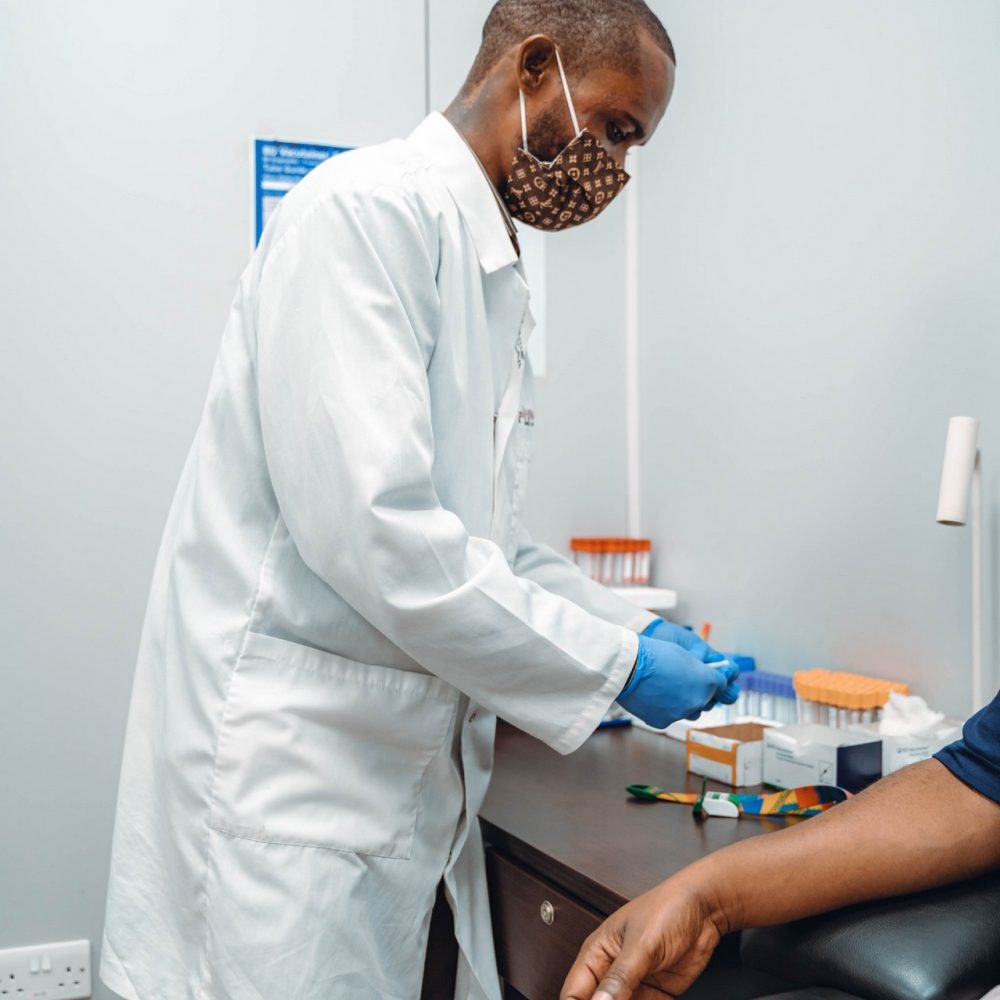
Fine Needle Aspiration
What is Find Needle Aspiration?
Fine needle aspiration (FNA), also called fine needle biopsy, is a type of biopsy where a needle is inserted into a lump or mass to collect a sample of cells.
Based on where the cells are extracted from, a lab test is ordered for a pathologist to look at these cells under a microscope to help your doctor determine if the mass or lump is cancerous (malignant) or noncancerous (benign). Benign lumps may also be related to infection or inflammation. FNA can be performed on a variety of lumps that are either felt or identified on imaging tests (such as ultrasound or CT scan).
A few common reasons FNA may performed include:
- Nodules in the thyroid glands
- Enlarged or abnormal lymph nodes in many parts of the body
- Neck cysts
- Lumps or masses in the salivary glands (i.e., parotid gland, submandibular glands)
- Breast lumps or cysts
- Any musculoskeletal masses and localized collections.
How do I prepare for a FNA?
If you are diabetic or on regular medication, please inform us when scheduling your appointment.
We recommend that you wear comfortable clothing that you can easily change out of, if necessary. We also advise that you wear a minimal amount of jewelry as you may be required to remove them. Your items will be securely locked for the duration of your exam.
In some cases, a bleeding profile test Prothrombin Time (PT) and partial Thromboplastin time (PTT) may be necessary to avoid post procedure bleeding.
What to expect?
Upon arriving at Jahmale, you will be greeted by our friendly and knowledgeable staff that will register and help you get ready for your exam. Our dedicated Sonographer will walk you through the procedure, answer any questions you may have and ask you to sign a consent form. The area of interest is cleaned with appropriate antiseptic chemical (iodine or alcohol) Then a small needle is inserted into the lump to remove cells. Multiple needle pricks may be performed to get enough cells. At Jahmale, an ultrasound device is used to help guide or direct the needle into the lesion.
Local anesthesia (numbing medicine) may be injected into the skin over the area where the biopsy will be performed. Although not painless, the discomfort from FNA is usually minimal. And can be treated with ice or over the counter pain medicine, if needed. Most often, the needle used for FNA is similar in size with a needle used for a blood test from the arm (venipuncture).
FNA is generally accurate and can often be used instead of an open surgical biopsy, which is usually more painful, costly, and may require the patient to be asleep.
When will I get my results?
Typically, the results from cells extracted during an FNA are available within two and a half weeks. These results may indicate a cancerous (malignant), noncancerous (benign), or indeterminate (uncertain) diagnosis. Referring doctors may provide Jahmale with an email address for result delivery. Please note that Jahmale will follow the delivery preference of your doctor considering they are your primary health care provider and have the best knowledge of your medical history.
However, FNA results for Jahmale patients will be sent directly to your doctor to be discussed with you during your follow-up visit.






